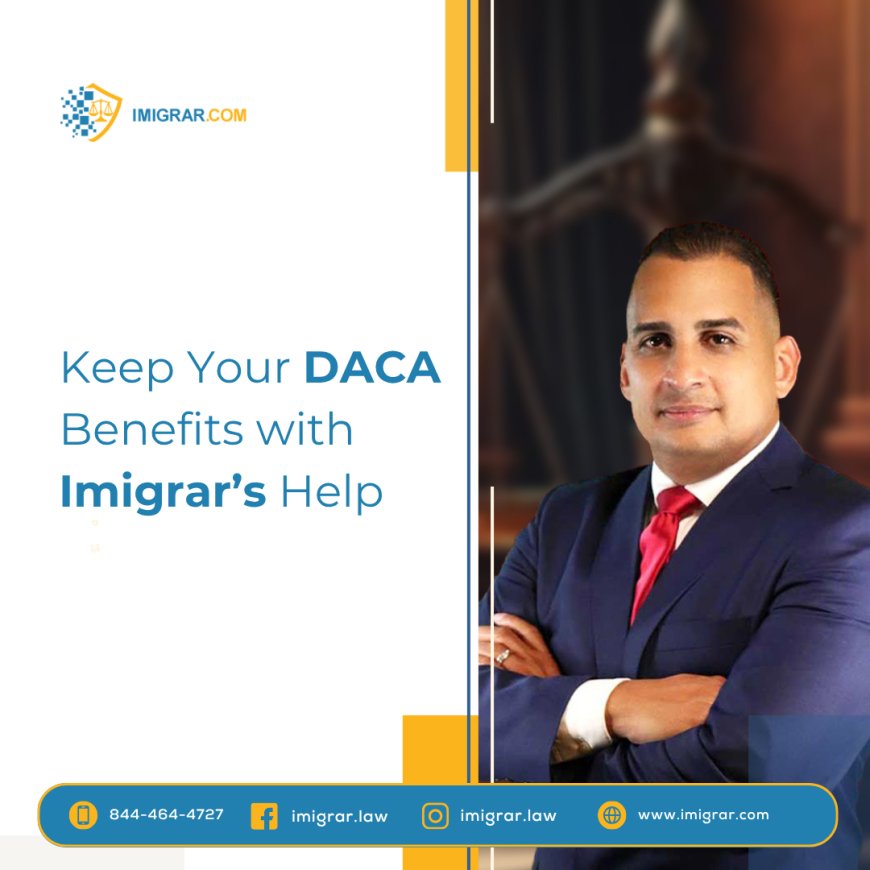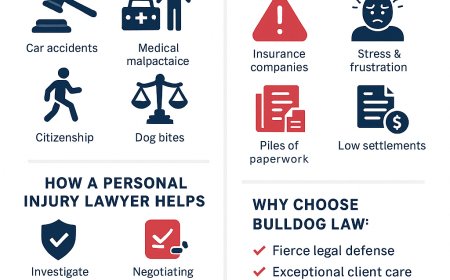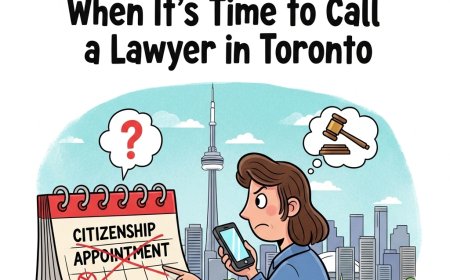Support and Rights for Undocumented Immigrants
Understand rights, support systems, and legal help for undocumented immigrants. Stay informed about vital resources and expert guidance.

Undocumented immigrants live in communities around the world, often working, studying, and raising families while lacking legal permission to remain. They face daily uncertainty about their future and struggle with legal, economic, and social barriers that make life extremely challenging. This post explains their situation using real data, outlines their rights under the law, describes the challenges they face, and shares practical ways to support them with compassion and understanding.
The Scale and Causes of Undocumented Immigration
Migration is a global reality, and undocumented immigrants form a significant part of that movement. According to the Migration Policy Institute, over 11 million undocumented immigrants lived in the United States in recent years. In Europe, countries like the United Kingdom, Germany, France, and Italy have hundreds of thousands each. Australia has also seen growing numbers, especially among those overstaying visas.
Many factors drive people to migrate without legal authorization:
-
Conflict and violence: Wars, persecution, and insecurity force families to flee quickly without waiting for formal visas.
-
Poverty and lack of opportunity: People risk everything for the chance of a better life for themselves and their children.
-
Natural disasters: Climate change and disasters displace entire communities.
-
Complex visa systems: Even where legal migration channels exist, they are often expensive, limited, or closed to poorer applicants.
Some arrive without papers at all, while others enter legally but overstay their visas when circumstances change.
Challenges Faced by Undocumented Immigrants
Undocumented immigrants deal with serious, sometimes life-threatening challenges that make daily life extremely hard:
-
Fear of deportation: Many avoid authorities and services because they fear arrest and forced removal from the country.
-
Workplace exploitation: Without legal status, they are vulnerable to underpayment, unsafe working conditions, and threats of being reported.
-
Healthcare barriers: Fear of exposure, lack of insurance, and high costs mean many delay or avoid treatment, even for serious illnesses.
-
Housing insecurity: Landlords may refuse to rent without proof of status, or exploit tenants who cant report problems.
-
Limited education access: While many countries guarantee basic schooling, older students often struggle to enroll in college or qualify for financial aid.
Research by the Pew Research Center shows that fear, financial insecurity, and social stigma can cause lasting harm to mental health and well-being.
Legal Rights and Protections
Despite their status, undocumented immigrants often still have rights under the law. These vary by country but generally include:
-
Due process: In many countries, people cannot be deported without a hearing or review.
-
Protection from discrimination: Laws often ban discrimination based on race, nationality, or immigration status in certain contexts.
-
Labor rights: Employers must follow minimum wage and safety rules, even for undocumented workers.
-
Access to emergency healthcare: In countries like the United States, hospitals must provide emergency care regardless of immigration status.
Legal aid organizations help undocumented immigrants understand these rights. The National Immigration Law Center in the US, for example, provides easy-to-read guides and connects people to legal help.
How Governments Respond
Government policies toward undocumented immigrants differ widely:
-
United States: Immigration enforcement changes with administrations. While some policies prioritize deporting criminals, others seek broader removal of those without status.
-
European Union: Countries differ; Germany and Italy have sometimes offered temporary protections or pathways to regularization, while others focus on strict deportations.
-
Australia: Maintains offshore processing and detention policies to deter unauthorized arrivals.
These shifting policies make planning and stability very difficult for undocumented immigrants, who must constantly track new rules that affect their safety and ability to stay.
The Role of Community Support
Community organizations are often the frontline of help for undocumented immigrants. They address basic needs and offer dignity, safety, and a sense of belonging:
-
Legal clinics: Help people understand their rights, apply for relief, or navigate court processes.
-
Shelters and food banks: Provide safe places to stay and meals without requiring ID.
-
Language classes and job training: Help immigrants find work and integrate.
-
Health and mental health services: Offer care that respects cultural backgrounds and privacy.
Organizations like RAICES in Texas, the Refugee Council in the UK, and Asylum Access across various countries provide vital support and push for policy change to make immigration systems fairer.
Education: Barriers and Opportunities
Education is often one of the few secure rights for undocumented immigrants:
-
Primary and secondary school: In the United States, public schools must accept all children regardless of immigration status. This ruling from the 1982 Supreme Court case Plyler v. Doe has transformed lives.
-
Higher education challenges: Undocumented students often face high tuition and limited financial aid. Some US states offer in-state tuition to undocumented students, while others explicitly ban it.
-
Scholarships and private aid: Nonprofits and foundations fill gaps for students who want to attend college but cannot access government aid.
Education offers a pathway out of poverty, but barriers remain high and require sustained advocacy to overcome.
Economic Contributions
Despite stereotypes, undocumented immigrants are crucial to many economies. In the US, for example:
-
Key industries: Agriculture, construction, hospitality, caregiving.
-
Labor shortages: They fill jobs that are difficult to staff otherwise.
-
Tax contributions: The Center for American Progress estimated in 2020 that undocumented immigrants paid over $11 billion in state and local taxes.
Similar patterns appear in Europe and Australia. Even without status, they often pay taxes through sales, rent, and payroll deductions, yet cannot access most benefits.
Mental Health and Social Impact
Living without legal status creates significant mental health challenges:
-
Stress and anxiety: Constant fear of deportation or separation from family.
-
Isolation: Avoiding institutions and authorities limits social connections.
-
Trauma: Many fled violence or poverty and face new traumas in their new country.
Organizations offering free, confidential mental health support are essential. Peer-led groups, culturally aware counselors, and clinics that don't ask about status help people get the care they need without risking exposure.
How You Can Help
There are practical, effective ways to support undocumented immigrants in your community:
-
Volunteer: Help at clinics, shelters, or English classes.
-
Donate: Fund legal aid, housing programs, or food banks.
-
Speak up: Challenge anti-immigrant rhetoric in your circles and support humane policies.
-
Advocate: Push for laws that protect workers, families, and children regardless of status.
-
Stay informed: Learn about your local context and share accurate information with others.
Support can be as simple as listening without judgment or helping someone find resources.
Building Better Policies
Creating fairer systems means recognizing that undocumented immigrants are human beings with hopes, fears, and contributions to society. Policies that focus only on enforcement often ignore root causes like poverty, war, and broken visa systems.
Advocates argue for:
-
Pathways to legal status: Allowing people to come out of the shadows.
-
Family unity: Avoiding the trauma of separation.
-
Safe working conditions: Preventing exploitation.
-
Access to healthcare and education: Building healthier, better-prepared communities.
International law recognizes the right to seek asylum and expects countries to respect human dignity. Thoughtful immigration reform can balance border management with compassion.
FAQs
1. What challenges do people without legal status face?
They often deal with fear of deportation, poor working conditions, limited healthcare, and housing insecurity.
2. Do undocumented workers have any legal protections?
Yes, many countries grant basic rights like fair wages, anti-discrimination laws, and emergency healthcare access.
3. How do community groups help migrants without papers?
They offer legal aid, shelters, food, language classes, and healthcare without requiring immigration documents.
4. Can children without legal residency attend school?
In many places, public schools must accept all children regardless of immigration status to ensure education access.
5. How can I support people living without documentation?
You can volunteer, donate, advocate for policy reform, and help spread accurate, respectful information in your community.
For More Detail Visit :Blog,Facebook,Pinterest,Medium,Instagram
Conclusion
Undocumented immigrants remain a vital part of many societies despite the risks they face. They deserve access to legal protections, community support, and opportunities to live with dignity. By understanding the challenges they face and offering practical help, we can build fairer, safer, and stronger communities for everyoneincluding undocumented immigrants.






























